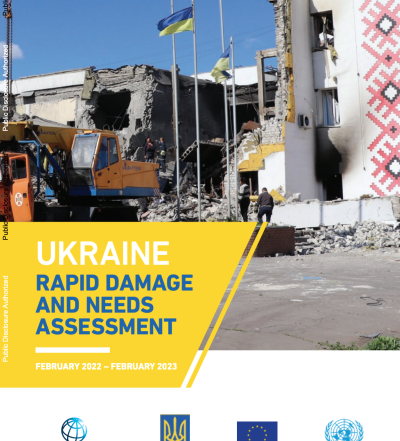Over 250,000 Ukrainians set to benefit from social stability initiatives

In collaboration with the KfW development bank, the German government has agreed with the International Organization for Migration (IOM) to further support the recovery and stability of displaced and other war-affected Ukrainians.
The deal involves developing long-term solutions through three new initiatives, Rubryka reports.
An additional €89.9 million, provided by the Federal Ministry for Economic Cooperation and Development of Germany (BMZ), is expected to directly or indirectly benefit at least 250,000 people in ten regions of Ukraine.
According to the damage and needs assessment since March 2023, the direct losses for buildings and public infrastructure in Ukraine due to the Russian invasion amount to $135 billion.
Approximately 1.4 million residential buildings have been damaged, with about a third of them beyond repair. Internally displaced persons (IDPs) and other affected population groups often find themselves in inadequate housing with limited access to essential services. Many people lack sufficient income to cover their basic needs, as the poverty level has nearly quintupled since the beginning of the war.
"Supporting displaced persons and improving social stability is one of the priorities of German-Ukrainian development cooperation. The partnership between IOM and the German development bank KfW has been an effective foundation for providing comprehensive support in housing, public infrastructure, and livelihood improvement, which are crucial at the moment," said Martin Eger, the German Ambassador to Ukraine.
At the end of 2023, the KfW and IOM signed agreements for three programs. The first program aims to expand the current initiative, providing social and affordable housing for IDPs and other war-affected Ukrainians in regions with many displaced persons.
The Humanitarian and Reconstruction Fund (HREF) will strengthen communities' ability to identify and prioritize their recovery initiatives, focusing on rebuilding public infrastructure and services in conjunction with social stability initiatives.
Finally, the "Livelihoods+" initiative was created to promote Ukraine's socio-economic recovery. The initiative aims to provide IDPs and others with the needed equipment, infrastructure, and skills to find decent employment or start thriving businesses.
"When I was about to close my restaurant, the assistance helped me not only financially but also emotionally not to give up," said a small business owner from the Kyiv region after receiving a grant from SME Boost, a project supporting micro and small enterprises funded by the German government through KfW.
These measures are expected to contribute to gender equality by expanding economic opportunities for women and strengthening their role in local decision-making. The initiatives will also focus on integrating displaced persons and other vulnerable groups, including war veterans and their families.
"Involving local authorities at the regional and community levels will ensure a recovery that aligns with local conditions and is coordinated with development plans and community priorities," said Stephen Rogers, Deputy Head of the IOM Mission in Ukraine.
Together, these three new initiatives can support at least 80,000 people. Another 170,000 IDPs, returnees, and others will indirectly benefit from improved infrastructure and services. The initiatives will be executed in clear coordination with the Ukrainian government and the national recovery plan.
IOM and the German government, through the KfW, have built a strong partnership in Ukraine since 2020. The recently initiated projects will expand and complement current actions based on the most effective practices and experiences.
At the behest of the German Economic Cooperation Ministry, KfW and the Ministry of Finance of Ukraine signed a €50 million grant agreement to finance the 5-7-9 program.
The KfW is allocating €24 million to the Ukrainian power company "Ukrenergo" to restore a substation damaged by missile attacks.




















































